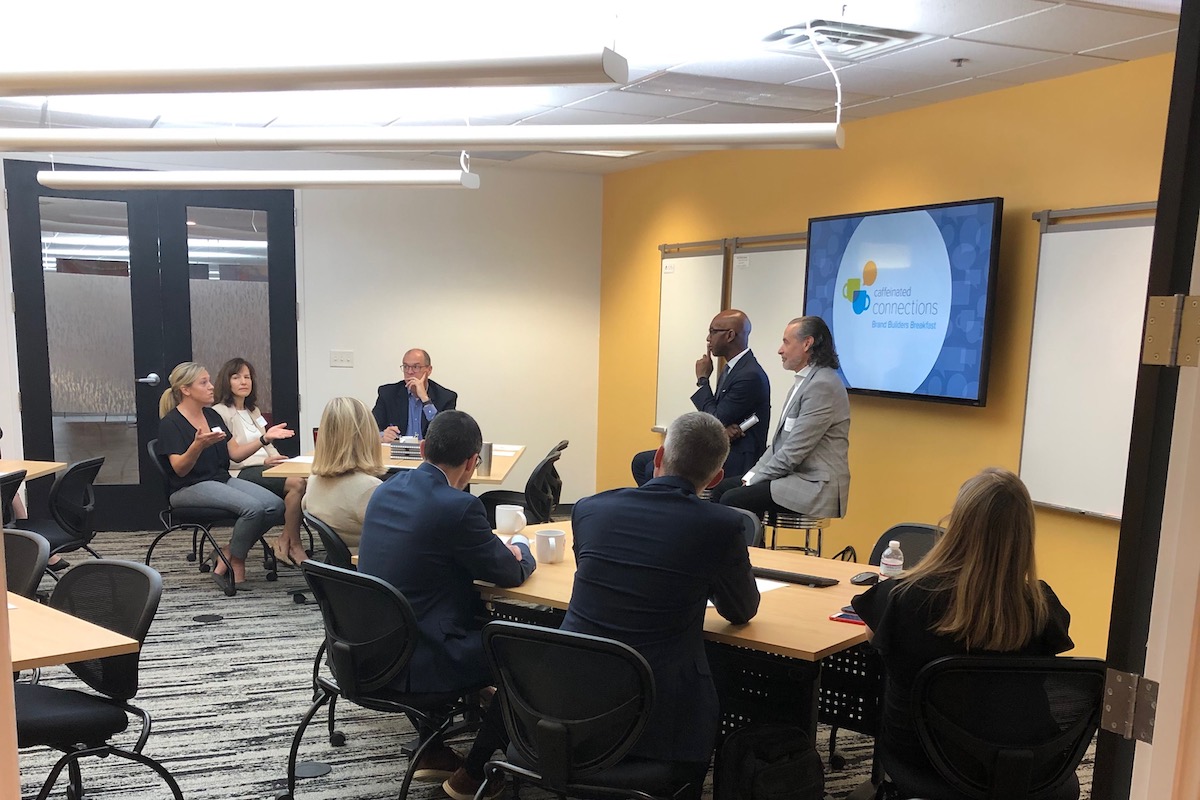We recently had the pleasure of hosting two Gannett executives for a fascinating discussion. Much of the conversation with the assembled marketing and communications leaders referenced the recently announced GateHouse acquisition with Gannett (the successor company will be named Gannett). You can read about it in this NYT article from August 5, 2019.
We were interested in what it said about the changing media landscape.
Eddie Tyner has been on the business side of media for more than 29 years. He’s now the Regional President and Vice President of Sales for Gannett USA. Beryl Love has been journalism side of media – primarily print media – for nearly 30 years. He is now the Editor and Vice President of News for the Cincinnati Enquirer and Regional Editor of USA Today, Gannett’s flagship publication.
Tyner and Love both believe the great value of the GateHouse merger is the longer runway it will provide for needed change and adaptation. Indeed, both gentlemen shared that the new Gannett would reach a staggering 150 million adults on a monthly basis. They said this will make the new Gannett the No. 1 or No. 2 “site” (read: audience reach) in the media business.
Tyner was quick to add that this remarkable scale would enable Gannett to target very specific audiences. This matters, he added, because big companies (P&G, Amazon, Kroger, etc.) pay attention to national rankings, audience reach and audience segmentation.
Much of our engaged and interactive discussion focused not just on the business side of media, but on the future of journalism. These gentlemen were encouraged.
Love sees great value in local journalism – the things that matter day-to-day to millions of Americans. He is certain that national media organizations can never address this. He also believes that big “J” journalism – accountability or investigative journalism – is becoming more valuable and more wanted.
He referenced the growth and influence of branded content for community-based news organizations. He proudly (and, rightly so) referenced the Enquirer’s 2018 Pulitzer prize for their “Seven Days of Heroin” series. This was underwritten by St. Elizabeth Healthcare (a Vehr client at the time).
He also mentioned “The Long, Hard Road” series the Enquirer is currently running. It tells the stories of people who live, work and struggle along 80 miles of road in the heart of Greater Cincinnati. The Kroger Co. is underwriting this series in part to draw attention to its efforts to reduce hunger across the nation through its Zero Hunger | Zero Waste initiative.
Both Tyner and Love referenced the new Gannett CEO, Paul Bascobert, and his deep background in building online marketplaces. He was the former CEO of the XO Group (formerly The Knot Inc.), a media and technology company built around wedding planning that generated revenue through online advertising, merchandising, registry services and publishing.
For me, there is no better reflection of today’s media organization than Tyner’s description of Gannett, whether before or after the merger. He proudly proclaimed to work for a multi-platform, digital news organization.
The breakfast event closed with Love proclaiming that they needed to use their scale and technology platform to create new marketplaces. This, from a career print journalist. Yes, the media landscape is surely changing.








